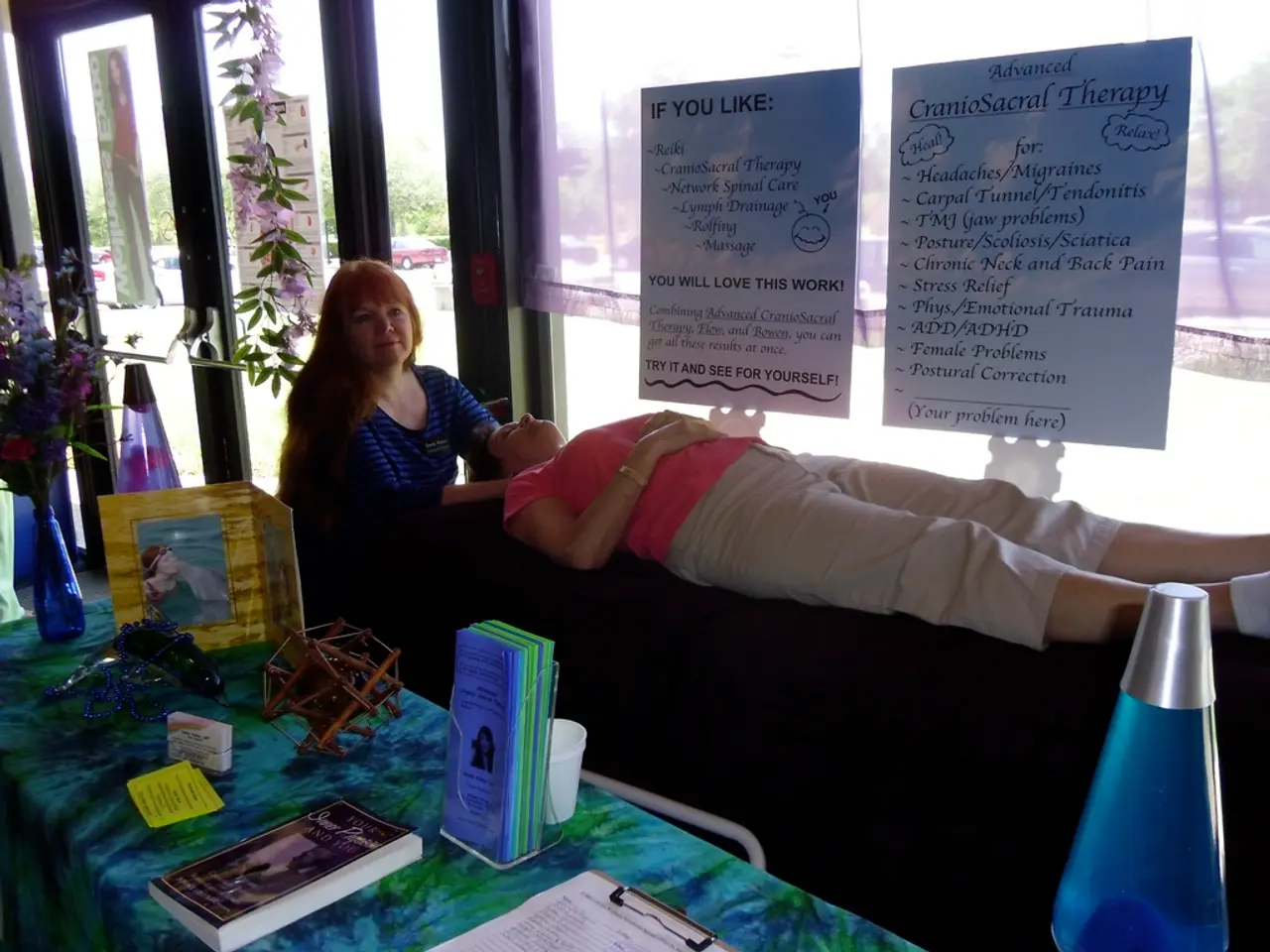Depression Relief Through Massage: Impact, Classifications, and DIY Approaches
In the realm of mental health, massage has emerged as a potential complementary treatment for depression. Similar to therapeutic massage, self-massage can offer benefits such as reduced anxiety, enhanced circulation, decreased muscle tension, and improved sleep quality.
However, it's crucial to note that massage should not be considered a stand-alone treatment for depression. While it may help alleviate symptoms, it's vital for anyone experiencing symptoms of depression to seek advice from a doctor or mental health professional.
When it comes to the most effective types of massage for those dealing with depression, Swedish massage, Shiatsu, Aromatherapy massage, and Deep tissue massage stand out. These techniques have demonstrated benefits for both physical relaxation and mental health improvement.
Swedish massage, the most commonly available type in Western nations, involves long, fluid strokes to muscles and tissues. Shiatsu, a Japanese massage technique, applies pressure to certain parts of the body using the palms and fingers in rhythmic, continuous motions. Aromatherapy massage combines the benefits of massage with essential oils that can enhance relaxation and improve emotional state. Deep tissue massage targets deeper muscle layers to relieve chronic tension and pain.
The benefits of massage in managing depression are multifaceted. Neurochemically, massage increases serotonin and dopamine (the body's "feel-good" chemicals), while lowering cortisol (the stress hormone), which together enhance mood and reduce stress. Physically, by relieving muscle tension and promoting better circulation, massage reduces physical discomfort that can worsen depression and anxiety.
Massage also stimulates the parasympathetic nervous system, inducing deep relaxation, lowering heart rate and blood pressure, and counteracting the stress response. Improved sleep quality is another advantage, as massage can promote better, more restful sleep, which is commonly disrupted in depression.
Regular massage therapy has been shown to support clearer thinking, a more positive outlook, and a reduction in feelings of anxiety and depression. In summary, incorporating regular massage such as Swedish or Shiatsu massage can be a valuable complementary approach for managing depression by addressing both psychological and physiological aspects of the condition.
Self-massage may provide similar benefits but should not replace professional guidance. In case of severe symptoms including thoughts of suicide, immediate help should be sought. It's always advisable to consult a mental health professional when choosing a massage therapist. Some professionals specialise in working with depression or mental health conditions, and their expertise can enhance the therapeutic benefits of massage.
- In the realm of health-and-wellness, massage therapy has emerged as a potential complementary treatment for depression, offering benefits such as reduced anxiety, decreased muscle tension, and improved sleep quality.
- Massage therapy, particularly Swedish massage, Shiatsu, Aromatherapy massage, and Deep tissue massage, has demonstrated benefits for both physical relaxation and mental health improvement in managing depression.
- Neurochemically, massage therapy increases serotonin and dopamine (the body's "feel-good" chemicals), while lowering cortisol (the stress hormone), thereby enhancing mood and reducing stress.
- Regular massage therapy, when combined with a healthy diet and fitness-and-exercise regimen, can support clearer thinking, a more positive outlook, and a reduction in feelings of anxiety and depression. Additionally, it's important to consult a mental health professional when choosing a massage therapist, especially for those dealing with severe symptoms or mental health conditions.




